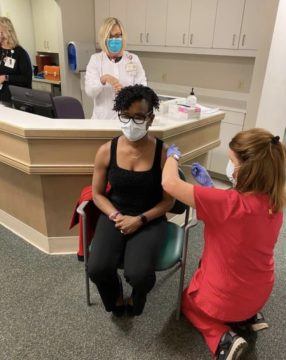by Godfrey Onime

Ponder this. It is the 15th century and you have a high chance of contracting and dying from a rampant infection. Turns out that you could intentionally infect yourself with a small dose of the contagion, get slightly sick, and become protected for life. Of course, things are not always that simple. You could get more than just a little sick. You could even die, but 1000 times less likely than if you acquired the infection naturally. Would you infect yourself and beloved family members? I believe I would, and I’ll tell you why.
Long before science knew about bacteria and viruses or that they caused diseases, long before vaccines were even imagined, that exactly was the dilemma that people the world over faced — whether or not to preemptively infect themselves, in hopes of preventing more serious illnesses, or worse, death. Indeed, those were desperate times, with no antibiotics, hospitals, or ICUs.
One vexing affliction for this historical palaver was smallpox, which was rampart in much of recorded history. Not only was it highly infectious, it rendered its victims extremely sick: raging fevers, splinting headaches, searing backaches, crippling fatigue, monstrous skin eruptions, and quite often, death. When it did not quickly and gruesomely kill sufferers, the scourge left them disfigured, not the least with unsightly pockmarks on the face. Little wonder then that many started to intentionally infect themselves and kids with smaller and possibly weaker doses of the infection, which they obtained from the oozing sores on the skins of the afflicted. This practice of using the actual, live bug to self-induce infection is called variolation. Among those intentionally exposed to smallpox through variolation, about 1-2 in 100 may die. For those who got the infection naturally, about 30 in 100 died. Read more »
